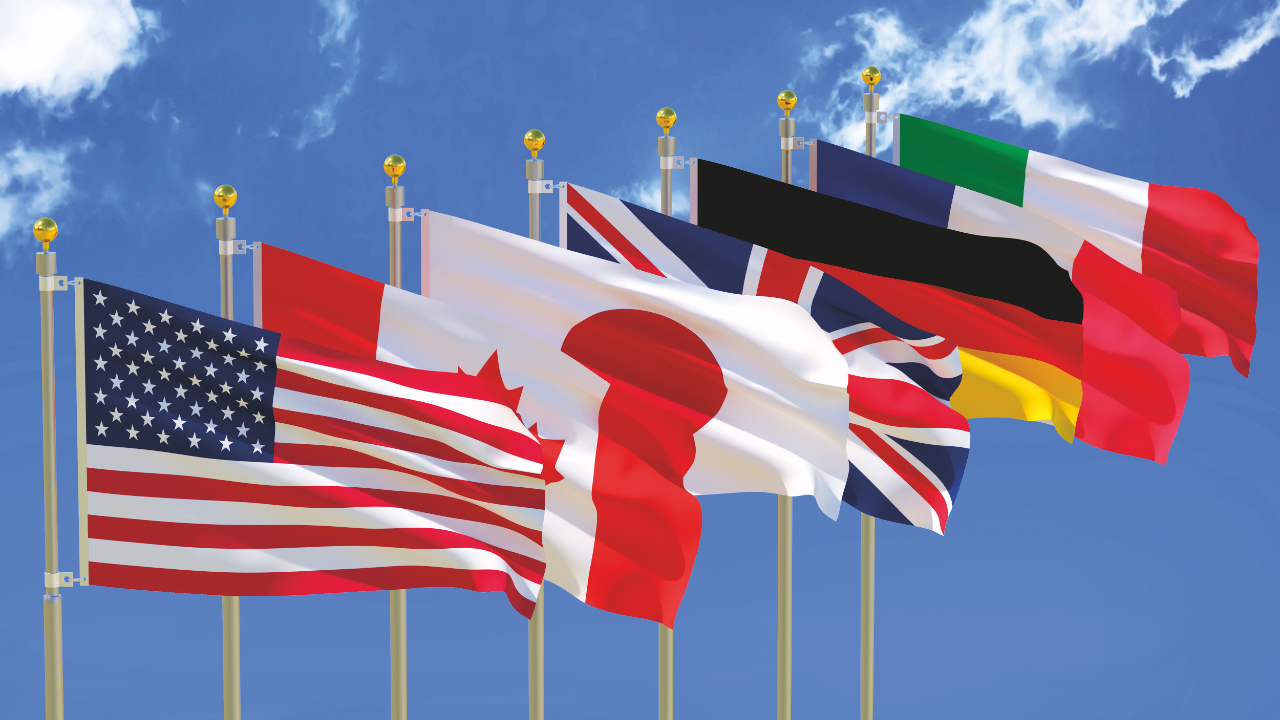The G7 countries on Saturday got in a huddle to plan a significant infrastructure initiative for lower-income countries in a bid to counter China’s multitrillion-dollar Belt and Road Initiative, dubbed the “New Silk Road”. The G7 nations released a joint statement after their three-day summit held in Cornwall on June 13, which essentially pushes for a new cold war against China.
The group showcased Western unity to counter China’s growing economic influence. Together the group promised to collectively pump hundreds of billions in infrastructure investments for low- and middle-income countries to discuss the strategic competition with China. The Build Back Better World (B3W) initiative will be led by American President Joe Biden and will provide a transparent infrastructure partnership to help narrow the $40 trillion infrastructure need in the developing world.
G7: The Group of Seven
The Group of 7 (G7) is an intergovernmental informal group of seven countries – the United States, Canada, France, Germany, Italy, Japan and the United Kingdom. Unlike other bodies such as NATO, the G7 group has no legal existence, permanent secretariat or official members. Apart from this, it also has no binding impact on policy and all decisions and commitments made at G7 meetings.
The G7 submit has earlier played an important role in various global initiatives. In 1997, the G7 countries together agreed to provide $300 million to contain the effects of the disastrous reactor meltdown in Chernobyl. Then, during the 2002 summit, members of the group decided to launch a coordinated response to fight the threat of diseases like AIDS, Tuberculosis and Malaria.
However, it should be noted that the G7 has also faced many criticisms because of its involvement in a number of controversies. Also, the exclusion of the world’s largest economies like India and China is also one of the reasons why the group is criticised. But this year, Indian Prime Minister Narendra Modi was invited to the 2021 G7 summit as a special guest. This is the second time that Prime Minister Modi was invited to participate in the discussions.
The B3W initiative
As discussed by the G7 countries the B3W initiative aims to spend hundreds of billions of dollars in collaboration with the private sector while adhering to climate standards and labour practices to compete with China’s BRI. It has been claimed that the B3W initiative which is led by the major democracies of the world will be a values-driven, high-standard, and transparent infrastructure partnership.
China’s Belt and Road Initiative has helped build roads and ports in several countries, but the project has always been criticised for burdening those countries with huge debts.
India’s concerns over CPEC
The China-Pakistan Economic Corridor (CPEC), the flagship project of BRI is a major cause for concern for India as the project passes through Pakistan-occupied Kashmir (PoK). The massive infrastructure project connects China’s Xinjiang province with Gwadar port in Pakistan’s Baluchistan province.
India in past has multiple times raised concerns over this Chinese initiative and has also refused to join the project.
China’s counterattack on G7
As the leaders of G7 met in London and decided to initiate a project in competition to China’s BRI. China even warned the G7 leaders that the days when a “small” group of countries decided the fate of the world were long gone. China has repeatedly hit back against the move as it perceives this initiative as an attempt by Western powers to contain the country.

